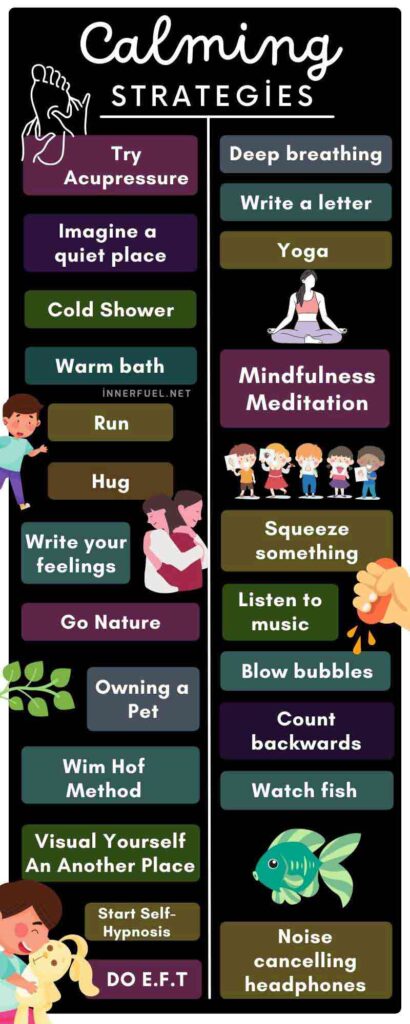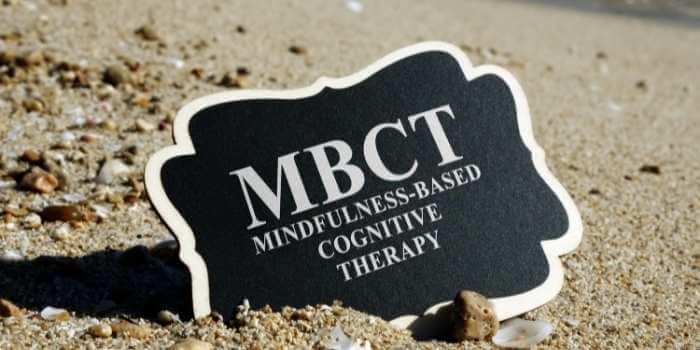
Being stressed and irritated — both physically and mentally — is not a new problem that everyone is facing. Stress can be the factor behind many illnesses and negative behaviors. Yet, people don’t realize how to keep stress under control and avoid becoming unwell because of it.
Managing stress is a challenge that many people face every day. It’s not just a matter of avoiding stressful situations but also knowing what to do when they happen. If you’re one of those people who feels like you have nothing to do in your life, this article will be able to help you with that
When you become anxious or angry about something, self-soothing techniques are the key to feeling better again. Those simple tasks might seem easy at first, but it can be helpful to remind yourself of that when feeling overwhelmed.
Here some helpful, actionable tips are listed below
1- Deep Breath

When people are anxious and angry, they often take quick, shallow breaths, which sends a message to their brain. If the brain sees that the person is falling into a fight-or-flight response, taking long deep breaths will interrupt the cycle and reduce their stress levels.
Deep breathing is a quick way to relax and help you focus on things that matter. You can do it pretty much anywhere and for only a few minutes at a time. It’s also called “belly breathing,” “diaphragmatic breathing,” or “abdominal breathing.” It will help you take the stress out of your life, making it easier to deal with whatever you’re dealing with
You can use various breathing methods to help you get centered and relax. One such technique is three-part breathing. Anyone who performs A breathing technique that requires deep breaths followed by a controlled exhale with an understanding of the body.
Various techniques are used to achieve relaxation and calm in the therapeutic setting. These include deep breathing, progressive muscle relaxation, mindfulness meditation, and even biofeedback.
2- Wim Hof Breathing
Wim Hof, widely known as “The Iceman,” developed the Wim Hof Method, a Dutch extreme athlete.
The Wim Hof Method, unlike traditional health and fitness regimes, was established to allow performers to achieve certain feats using a unique combination of breathing techniques, including pain tolerance and health issues.
Wim Hof breathing involves deep breathing and breathing techniques that focus on breathwork. It also consists in experiencing body sensations and staying connected to your body. Wim Hof’s breathing method can help you connect more deeply to your body, with several overall health and wellness benefits.
According to Wim Hof’s website, it has several advantages; The Wim Hof Method claims to have many advantages. Some of the main benefits include increased energy levels, improved moods, and more.
- Stress levels were lower
- increased concentration and willpower
- Immune system support
- Calmer
Some of the earliest studies on Hof’s techniques showed that it kick-started his brain’s prefrontal cortex, responsible for executive functions such as planning, organizing, working memory, and self-control. In other words, it helps you be more disciplined and make better decisions.
The method is a great choice that increases plasma epinephrine levels to feel more stable and energetic.
Wim Hof, a master athlete and an extreme endurance athlete has been training himself to resist the effects of hypothermia and hyperthermia by controlling his temperature through controlled breathing. Wim’s method of intense self-discipline has become a global sensation with over 200,000 followers worldwide and counting.
3- Relaxation Response With Meditation

Meditation benefits are a fast, easy and effective way to help you live a more peaceful, calm, and stress-free life.
Chronic stress can be a very dangerous thing. Stress can cause significant problems in your life like depression, anxiety, insomnia, and even causing you to take illegal drugs.
Meditating is a great way to find calm and peace in your life and balance your emotions. It will benefit both your emotional well-being as well as your overall health.
For example, depression is a common condition where people feel discouraged and hopeless about their lives. The symptoms of depression can be different for individuals, and self-criticism can be a symptom for some patients.
Research has been done recently on self-compassion and found that this motivated behavior helped reduce a person’s symptoms of depression. It is also shown to protect against negative thoughts and feelings, and finally, we become calmer in our environment. (source)
Scientists argue that meditation has the potential to improve our health, happiness, and well-being.
Mindfulness Meditation
Another example is mindfulness meditation. Mindfulness meditation reduces cortisol levels in the blood, reducing stress and the risk of stress-related conditions such as mental disorders, peptic ulcers, and migraines. (source)
A study found that people biased against black and homeless people showed changes in their attitudes after learning how to meditate ( loving-kindness ) and implementing this skill into their daily lives. Like mindfulness meditation, kindness meditation led to participants’ shortened pre-post difference[s] in negative biased attitudes. (source)
4- Cognitive Behavior Therapy

CBT is a type of therapy that can be very helpful in helping patients gain control of their emotions. In particular, it helps with anxiety disorders, anger, depression, stress and can help overcome addiction.
In one trial, CBT was shown to be significantly more effective in treating various anxiety-related conditions, including social anxiety disorder, panic disorder, and generalized anxiety disorders.
Helps Anger
Cognitive Behavioral Therapy teaches patients many different ways to help them identify the reasons behind their anger and seek solutions to resolve said issue.
If you think you might be experiencing stress-related symptoms, try cognitive/behavioral therapy, which is very effective.
Note: Mindfulness-based cognitive therapy (MBCT) is a type of cognitive therapy that uses mindfulness techniques combined with cognitive methods that have been proven effective. These include exposure and response prevention. The inclusion of mindfulness has been shown to make the treatment more effective.
5- Deep Sleep

Slow-wave sleep, referred to as deep sleep, occurs in the third stage of NREM. It is characterized by low frequency and high amplitude delta wave patterns. It’s this stage where the most restful sleep occurs.
Deep sleep is a vital stage of rest that lets your body and mind recharge and repair to maintain health. There are many methods to increase deep sleep, and deep sleep can also use it for self-care relaxation.
Sleep Effect Feelings
Researchers found that sleep deprivation most strongly impacts the functional connectivity of brain regions in the prefrontal cortex. These findings are consistent with recent studies, which have indicated that it affects functions managed primarily by those areas, such as working memory or attention span.
Many other studies have shown that people who experience sleep deprivation report increases in negative moods like anger, frustration, and irritability. Sleep-deprived people often also experience decreases in positive moods like happiness and joy. Stress, anger, anxiety, and depression can be symptoms of sleeplessness. (source)
Physical activity programs, such as cardio workouts, high-intensity interval training (HIIT), or other high-intensity exercises can improve sleep quality. It’s also essential to keep your fitness routine in check. People who regularly exercise have better sleep quality than those who do not.
A lack of sleep impairs the production of prefrontal cortex neurons and lowers the efficiency of our brain.
Which Statement is Correct Concerning How Much Sleep People Need?
The most important thing to know is that different people need different amounts of sleep. There is no one correct answer to this question. It all depends on your age, sleep habits, and health. You may need more sleep than the average person. This is not to say that more sleep is better; rather, it’s essential to take care of enough sleep your individual needs. For example, Elon Musk sleeps an average of 6 hours a day.
6- Hypnosis

Sometimes we feel stressed and overwhelmed. We don’t know what to do next and sometimes want to get back to being normal. Hypnosis is a brilliant way to achieve that.
Hypnosis can be used in many situations to help you deal with stress and anxiety. Try it now & see the difference!
Hypnosis is a powerful tool of self-control that not only makes you feel better but can even help you live longer & healthier
Why Hypnosis So Powerful?
Hypnosis can tend to increase the feeling of self-consciousness. It works by affecting areas of the brain involved in emotion control, which could later be said to enhance one’s self-acceptance and overall level of happiness.
However, what researchers found in their 2016 study was somewhat surprising: Hypnosis meditation training brought about changes in the brain’s emotion control.
Clinical hypnosis is a powerful technique that can ‘access’ our subconscious mind and restore the lost power of belief in all things possible. Hypnotic thoughts and words will change your expectations and even enhance the effect. By blocking out current, limiting beliefs, you create access to healing thought patterns that enable you to shift resources into areas where they belong.
7- Journaling

Journaling is an effective way of tracking your symptoms and improving your mood. By doing this, you can learn to recognize WHEN you’re feeling down and why, which means you can tackle the problem sooner.
Journaling may support you in fully exploring your emotions, releasing the tension, and fully integrating your experiences into your thinking.
Journaling may be as beneficial as cognitive-behavioral treatment (CBT) in lowering mood disorders in high-risk teens.
Expressive writing can help women dealing with the aftermath of intimate partner abuse feel less depressed. (source)
What better way to calm down and enjoy the present moment than writing about it?
8- Nature and Grounding

Grounding, sometimes known as earthing, is a therapeutic practice where you engage in activities that “ground” or electrically link your body to the earth. Earthing techniques describe how electrical charges from the soil may positively impact your body.
For example; One hour of grounding therapy can considerably enhance mood (source)
Research by Chiba University showed that short periods spent in a forest environment could reduce blood pressure, pulse rate, and cortisol concentrations. It also strengthens parasympathetic nerve activity.
Grounding can be done indoors or outdoors, with or without grounding equipment.For more information i would suggest to check in this article.
Related: Grounding with the earth: The Most Important Health Discovery Ever?
9- Visual Yourself

You can also do a visualization exercise. You can focus on a particular object and image by visualizing a peaceful environment. In this way, you can create a powerful and positive thought pattern and then repeat it over again. The most crucial factor is to find a relaxing place to practice this technique. It would help if you practiced this exercise in a calm environment.
How does visualization promote relaxation and stress reduction ?
The benefits of a visualization exercise are varied. By focusing on calming images, you can relax and take on any challenge that comes your way. You will have a better sense of confidence and face your daily challenges more easily. Visualization will help you get a better perspective on your situation.
Visualization will also help you change your habit and be more productive. You will be able to cope with your stressful situations.
9- Stay Away Negativity With Gratitude

Practicing gratitude for your many blessings can decrease your levels of anxiety and anger. This powerful emotion-regulating strategy helps you shift your focus from negative emotions to positive ones. Practicing gratitude can help you improve your immune system, boost your self-esteem, and reduce aggression.
Researchers have linked increased levels of appreciation with decreasing rates of post-traumatic stress disorder (PTSD).
Study in 2003 found that those who felt gratitude for their excellent fortunes showed lower rates of depression. (source). If you’re feeling depressed, thankfulness has reduced the physical and psychological effects of stressful life events.
The benefits of gratitude for anger go beyond treating your feelings.
According to a study conducted by the University of Kentucky in 2012, Even when given negative criticism, study participants who scored higher on gratitude scales were less likely to react against others. They showed increased sensitivity and empathy for others and a decreased desire for revenge. (source)
Gratitude for your blessings can also help you sleep better. It has been shown to reduce cortisol, which is a stress hormone. And it enables you to cope with your problems more effectively, making you more resilient.
10- Try Acupressure

A recent study found that applying pressure beneath the earlobe may reduce anxiety. When you are already stressed, this form of self-care can make a difference.
The question of does acupressure relieves anxiety is essential for any treatment plan. Although acupressure does not have any side effects, it does have some benefits that may help. It does not interact with other medical treatments and can be used. Some studies indicate that acupressure can reduce the anxiety and stress accompanying many illnesses.
In a 2015 study, cancer patients were given fake acupressure to lower their reported pressure and stress. The treatment had no adverse effects, though.
Research into acupressure has shown that it can help alleviate anxiety in some cases. A study in 2012 found that acupressure could reduce the levels of the hormone cortisol in the body, and the results showed statistically significant differences between the control and intervention groups.
However, it is essential to note that there are no definitive proofs to support the claims made by these researchers. Many other studies support the benefits of acupressure for anxiety but need more research.
Whether you’re experiencing pain, preventing pain, or healing from it. Chinese doctors have used Acupuncture as a medicinal treatment for thousands of years.
12- Cold Shower

There are many benefits of taking a cold shower, but little research proves its effectiveness. Scientists have found that the cold water’s frigid temperature triggers the sympathetic nervous system, which governs the body’s fight-or-flight response. This activation is likely to increase blood pressure and heart rate. This activation helps you get more energetic, focused, centered and alleviates your mood.
One study by Virginia Commonwealth University found that cold showers may relieve depressive symptoms in men. Coldwater sends electrical nerve impulses to the brain, uplifting.
Similarly, a recent study by the North American Journal of Medical Sciences concluded that cold water relieves pain and inflammation in the body. In other words, cold showers can help people with stress. Chronic stress, such as anxiety, can increase the risk of infection and lead to overtiredness and sickness.
Plus, according to the people who regularly take a cold shower, you can temporarily disengage from all of your worries.
“Cold is my warm friend“
Wim Hof
13- Try a Ketogenic Diet

The ketogenic diet may help you to become calmer and lift your mood.
In addition, people with depression, low moods, and anger tend to have high levels of proinflammatory cytokines released by the body in response to inflammation. The ketogenic lifestyle is proven to reduce these levels and increase antioxidant production.
It’s not all about weight loss. A low-carbohydrate ketogenic diet effectively prevents mood swings and improves blood sugar control. It also helps reduce fatigue and keep blood sugar levels regular. A healthy glucose level in the bloodstream is a prerequisite for a healthy mood. Studies have shown that a ketogenic diet can improve your mood. This article outlines why a ketogenic diet may be proper for you.
There are several ways that the ketogenic diet can improve your mood. One study found that ketosis enhances brain health by decreasing intracellular sodium and calcium levels.
Another study showed that it improved insulin resistance. This study also reveals that a ketogenic diet boosts the immune system, which can help you deal with stress. And of course, the research shows that BHB ketones may elevate your mood. Ketogenic diet may be a good fit if you’re looking for a natural remedy for your mood problems.
Learn how to use ketosis for weight loss, improve your health, and have a better quality of life.
For more information please check out: 18 Potential Health Benefits of the Ketogenic Diet
High-quality research has shown that BHB ketones may elevate mood and cognitive function.
14- Try Magnesium Supplements

Does magnesium improve your mood? The answer may surprise you. Studies have shown that low magnesium levels can increase your risk of depression. This is because magnesium helps maintain healthy levels of GABA in the brain, a chemical that promotes sleep and relaxation. It is also beneficial for back, joint, and muscle pain and can help with restless leg syndrome. While there are no concrete tests, this is one of the essential nutrients to add to your diet.
In addition to its role in reducing stress, magnesium can also improve your cognitive abilities. Some studies have shown that the mineral positively affects the human brain. Consuming foods high in magnesium can help boost the antidepressant effect. Some foods rich in magnesium include spinach, avocado, dark chocolate, and beans.
Taking an extra 300-400 mg per day of magnesium can help you fall asleep faster, improve your sleep, and reduce your feelings of stress. According to one study, people who take an additional 400-500 mg of magnesium a day improved their heart-rate variability scores, measuring how well the body can cope with stress. This supplement can also help you relax during the day, regulating the hormone melatonin. This hormone regulates the body’s circadian rhythm, regulating many processes.
If you’re a beginner, start with a low dosage and avoid taking large doses of supplements because they can cause side effects such as diarrhea and vomiting.
Best Magnesium Form for the Calmness
The new study showed that magnesium acetyl taurate could help increase the number of magnesium levels in brain tissue more efficiently than other magnesium forms.
A study found magnesium acetyl taurate is far more effective in increasing brain tissue magnesium levels than magnesium malate, magnesium oxide, and magnesium glycinate forms which are directly linked to lower anxiety symptoms in animals. (source)
Magnesium acetyl taurate contains taurine. The combination made it easier for magnesium to pass the blood-brain barrier. For better, you can use the B6 vitamin to promote Mg absorption and cellular uptake and helps cross the blood-brain barrier
Related: Relaxing, and Focusing: GABA and Glutamate in the Human Brain
GABA plays a vital role in the brain. The body produces GABA, but not enough is made. This deficiency can lead to anxiety and depression. The supplements Magnesium and GABA are being used to help ease these symptoms.
15- Rhodiola Rosea

Research has shown that a supplement containing Rhodiola Rosea can improve mood. Its anti-inflammatory and neuroprotective properties can help ease stress and combat fatigue. In addition, Rhodiola can increase physical and mental performance, including resilience. Although it’s not known for its mood-boosting effects, Rhodiola is a promising treatment for various mental health conditions, including panic attacks, anxiety, and depression.
A recent open-label study indicates that it is a helpful treatment for anxiety.
While limited research is available, it is generally safe for human consumption. Studies have shown that Rhodiola Rosea improves mood and energy levels and reduces depression, stress, and anxiety symptoms. It also has a positive effect on the nervous system, promoting the improved mental capacity and improving focus. While many people have reported a positive impact from Rhodiola, most people note that it takes about a month or two before Rhodiola’s effects become noticeable.
Some research shows that Rhodiola is beneficial for fibromyalgia and chronic fatigue. Other studies have shown it may help treat different types of cancer, including breast cancer, colon, and prostate. There are many types of Rhodiola, including capsules, tea, and pills. The benefits of Rhodiola have long been recognized, and many people have found it helpful for various ailments.
Lower Your Stress With Adaptogens
Stress can destroy our health and productivity levels. And if stress and anxiety don’t get you down, nothing will.
Rhodiola Rosea helps you become more productive while at the same time easing the stress of modern life by improving mental alertness and boosting energy levels. With Rhodiola Rosea, you’ll be able to work better and have more fun doing it!
Related: Adaptogen Made Simple: What You Need to Know
Rhodiola has been used as a medicine for hundreds of years to treat numerous health problems ranging from anxiety and depression to asthma, allergies, arthritis, and fatigue.
16- Tai-chi and Qigong

The question “Does qigong improve your mood?” has been a hot topic in Chinese medicine for years.
While the practice of Tai Chi and Qigong is widely recognized for its mental and physical benefits, research on these ancient exercises is mixed. However, they can help improve one’s mood. The benefits of Tai Chi and Qigong are numerous and are not limited to lowering anxiety.
Recent preliminary studies suggest that tai chi can increase mood. In particular, preliminary studies indicate that regular tai chi practice can reduce symptoms of depression and anxiety. That way, you can feel more calm and centered. The slow and mindful breathing of tai chi affects the nervous system and mood-regulating hormones. Further research is needed to determine whether Tai Chong improves mood. Plus, Tai chi and Qigong may also enhance the quality of sleep.
Alternative Approaches
Traditional psychological treatments for anxiety disorders, including drugs with psychotherapy, have failed to treat the condition. These drugs have adverse side effects, are abused, and are ineffective for 45% of patients. This means that alternative approaches are needed. But it’s unclear whether Qigong can help those suffering from depression.
17- Essential Oils

Using essential oils to create a mood-boosting blend is an easy and effective way to lift your spirits and reduce stress. The benefits of aromatherapy are many, and they can be used alone or in conjunction with complementary and conventional therapies. These scents can help a person bring themself into the moment, as inhaling a familiar scent may elicit a conditioned response. Fortunately, there are many ways to do aromatherapy work for you.
A variety of essential oils can help you improve your mood. Lavender, for example, is one of the most popular scents used by aromatherapists and can promote a feeling of stillness. Peppermint can also reduce stress and is a popular oil for foot baths and self-massages. Those with headaches may want to try mixing lavender and chamomile, which have an uplifting effect.
There is no definitive evidence that aromatherapy improves your mood. However, some studies have found that it can boost mood, not surprising. The chemicals in essential oils trigger mood-controlling brain regions. Although more research is needed, these benefits are already apparent and are worth exploring. In any case, it is recommended that you use aromatherapy in conjunction with prescribed therapies. If you are anxious, you can give a chance to try aromatherapies.
17- Sun Shine

There are many benefits to being outdoors, from increased energy levels to improved moods. And there’s no reason to avoid sunlight. Too much sun’s ultraviolet rays can be harmful to your skin. Still, they also boost the production of serotonin, a hormone associated with happiness and focus. And a study of 30,000 women in Sweden suggests that exposure to natural light can extend life.
Although many other factors influence mood, exposure to sunlight has a biological basis. It helps elevate mood by boosting serotonin levels in the brain. Serotonin is the hormone that helps us feel relaxed peacefulness and is associated with a positive mental state.
Getting enough sunlight has many benefits for the body, including fighting depression and seasonal affective disorder. Those with this condition should be careful to apply sunscreen while outside.
You should open your windows and get outside as much as possible. If you’re suffering from a low mood, open your windows, sit near a window, and take advantage of natural light benefits.
However, further research is needed to determine whether or not exposure to sun rays can improve your mental health.
18- Minimize Phone Use and Screen Time

The problem is that we spend so much time on our phones, and when we do, it’s because we feel obligated to.
Overuse of the phone leads to distraction, fatigue, and even a range of unhealthy behaviors. So, what can you do about it?
Research shows that excessive screen time can increase stress, anxiety, and depression. People who spend seven or more hours a day are twice as likely to develop these conditions as those who spend less than one hour.
They are also more likely to develop mood disorders, have lower self-esteem, and have difficulty finishing tasks. Hence, the health benefits of limiting screen time are considerable (source)
Limiting screen time has many benefits for you. First, it improves your sleep schedule. Most studies show that it helps to put the cell phone down an hour before bedtime so that the brain can unwind and focus on something else.
Moreover, the blue light from screens can also impact your sleep schedule. For this reason, many experts recommend a blue-light filter to block out the blue light emitted by screens.
There is growing evidence that electromagnetic fields can disrupt the natural sleep-wake cycle of the body, as well as contribute to the development of a variety of other health issues, including weight gain, migraines, dizziness, and even cancer.
Also, they found WiFi exposure was found to significantly raise anxiety and impair locomotion in the study participants.
EMF exposure may increase the risk of depression, stress, and insomnia among workers who have had long-term exposure.
Melatonin is a hormone that regulates the sleep-wake cycle of humans and animals. At night, you are exposed to blue light as indicated by computer screens or televisions at night; this causes lower melatonin production and decreases sleep quality
19- Optimize B Vitamins

B vitamins, especially Thiamine is a vitamin that can help you feel calm and less anxious. It is a part of the B group of vitamins and helps with energy metabolism. It is also vital for growth and development. B1 vitamin is essential for nerve function and can reduce anxiety
Thiamine is also found in some supplements and foods. Most sources contain a small amount of the vitamin, and you can get thiamine from food Brewer’s yeast. Other good sources include milk, oranges, nuts, seeds, and whole-grain products.
Taking a thiamine supplement can increase your energy levels and decrease your appetite. This vitamin is also crucial for weight loss. There are many potential benefits of thiamine, from improving your mood to reducing the risk of depression. A recent study published in Am J Ophthalmol concluded that thiamine could help with insomnia and anxiety.
However, there is no conclusive evidence that thiamine can make you calm and relax; plus, some people say they felt better after optimizing their B vitamins level.
20- Music May Helps

Recent research has shown that music can improve your health and reduce your symptoms of anxiety and stress. The calming effect of music has been proven in clinical trials, and it is widely used in hospitals. For example, children undergoing a severe illness often have lower blood pressure and heart rates after listening to music. It may also help to reduce the severity of a stroke.
In addition, studies have shown that listening to music with nature sounds can reduce anxiety in people with Parkinson’s disease.
Many other studies indicate that music can help relieve stress and anxiety. For instance, listening to Mozart’s piano sonatas during a critical illness has been proven to lower stress hormone levels and decrease interleukin-6, a stress hormone associated with higher mortality, diabetes, and heart problems. In addition, listening to Mozart’s piano sonatas can improve your memory and calm anxiety. It has even been shown to be helpful for those who have dementia.
Related: Anxiety 101: The Essential Guide to Lower Your Anxiety
21- Avoid Excess Caffeine

Although coffee is a standard beverage, drinking coffee in moderation is healthy for most people. However, excessive consumption of coffee can have adverse effects on your health. While moderate coffee consumption does not increase your risk of heart disease or cancer, heavy consumption can.
The Mayo Clinic has found no link between coffee and cancer, as long as you limit your consumption. In addition, coffee has improved memory and concentration and reduced fatigue.
Drinking more than two to three cups of coffee a day can increase your risk of anxiety and panic attacks. It can also interfere with good sleep. (source) Caffeine depletes GABA levels. Because of this, coffee drinkers are more likely to experience anxiety, irritability, panic attacks, and other symptoms of nervous tension. (source)
The amount of caffeine that a person can tolerate varies from person to person. If caffeine makes you nervous or anxious, try switching to decaffeinated herbal tea or water instead of coffee or energy drinks.
Related: The Three Brain Boosting Beverages To Help You Stay Focused

According to Michael Lam, M.D., there are many benefits to socializing. He suggests that it could even improve your health. People who spend more time alone are more likely to suffer from depression and lower quality of life. But if you spend more time socializing with others, you might find that you become healthier. Moreover, socializing has been shown to help with cognitive development and reduce stress levels and anxiety. (source)
Research from Brigham Young University and the University of North Carolina indicates that the health benefits of socializing can far outweigh the adverse effects of loneliness. Loneliness, a known cause of a short lifespan, has the opposite effect. However, being social may be more important for longevity than avoiding unhealthy habits, such as consuming too much sugar and addictions.
It is no surprise that socializing can benefit the health of your mind. Besides enhancing your memory, it helps you feel better. For example, connecting with friends can reduce your risk of developing dementia. Additionally, interacting with others can help you cope with stress and depression. That way, you can feel more calm, relaxed, and centered.
And because socializing can make you happier, it’s an excellent way to boost your mood. There are other benefits of socializing that you can’t ignore.
23- Owning a Pet

There is a strong correlation between pets and reduced stress. Studies have shown that interacting with a dog or cat reduces levels of the stress hormone cortisol and increases the feel-good hormone oxytocin levels. Besides being a great companion, pets can help you stay physically fit. By maintaining a routine of regular wellness visits and annual vaccinations, you can help your pet live a healthy life and reduce your stress.
A recent study has shown that oxytocin, a hormone associated with calming when you snuggle or touch your pet, is secreted by the brain’s hypothalamus. (source)
In addition to providing companionship, pets can also help people overcome social phobia. They can make you feel more comfortable and open to socializing. Having a pet can also help you cope with loneliness and depression.
Related: Fascinating Reasons Why People Like Pets
24- Hugging

Do hugs make you feel better? A recent study by the University of North Carolina has proven this and found that hugging reduces your exposure to conflict. However, this finding only applies to a close relationship and does not apply to all relationships. If you feel lonely or depressed, a hug can help you feel more connected to others. It can help alleviate stress, pain, and depression; plus, you can feel more calm and centered. (source)
Related: Here Are The Effects Of Oxytocin On Trust, Love, and Sexuality
The research also shows that hugs can lower your blood pressure. A 20-second hug can help you fight infections and relieve tiredness compared to counting sheep. In addition to this, hugs can lower your blood pressure and protect your heart. Studies also show that giving hugs to babies helps improve their weight and overall development. Researchers believe that hugs can reduce stress and anxiety, so hugging essential.
Although it is vital to get hugs, choosing someone you feel comfortable hugging is critical. Research has shown that people who receive hugs regularly are less likely to be sick and are more likely to get sick less often. Additionally, a good hug can lower the stress hormone cortisol, damaging the body. So, even if it is an awkward goodbye or a short hug, it is still a good idea to hug someone. (source)
Which Health Component Describes the Ability to Deal With Stress?
The best way to handle high stress is to learn to identify the source of the problem. For example, if you work in a stressful environment, you may find it difficult to cope. However, if you know how to deal with high stress, you can manage it more healthily. Try to make yourself aware of your stressors. If you aren’t sure how to handle a particular situation, practice relaxation techniques to calm your mind and body like taking adaptogens, magnesyium, meditation, qigong, hypnosis, and cognitive Behavior Therapy.
Another effective technique to deal with high stress is to keep a diary of stressful situations. You can identify the problems that trigger your anxiety by keeping a journal. Once you learn to recognize the causes of your stress, you can learn to avoid them in the future. A diary can help you identify ordinary stressful circumstances. If you want to learn how to handle high-stress situations, try learning to cope with them. The skills you learn will help you be more resilient and productive in your career and life.
Which Of The Following Statements About Stress Management is True?
When it comes to stress, many people have a hard time figuring out what is right and wrong. Some people believe that stress is good. This may be true for short periods, but when prolonged, it can negatively affect a person’s life. Fortunately, many techniques and products are available that can help you manage your stress and live a better life.
Among these methods, meditation, exercise, and deep sleep are the best ways to manage stress. Other forms of managing stress, such as eating a healthy diet, getting magnesium, and getting enough sunlight, will help. Ineffectively managed stress can lead to physical, psychological, and emotional problems.
Acute and chronic stress is very different. The former is short-term and is usually experienced when a person faces recent pressures and challenges. The latter is a long-term condition that may have adverse effects. Managing chronic stress is beneficial for your overall health and becoming a calmer person. When managed effectively, it can also prevent other damaging effects, such as heart disease.
How to Staying Strong During Challenging Times?
To stay strong during challenging times, you have to be able to control your thoughts and emotions with using Cognitive-Behavioral Therapy, Meditation and Hypnosis. Plus, you need to understand that the difficult times in life may make you feel anxious and apathetic. However, if you know how to manage your feelings and thoughts, then you’ll be able to cope with any situation that comes your way. It’s important to remember that a difficult time can make you a stronger person.
Another way to stay strong during challenging times is to be thankful for the good things in life. It doesn’t matter how small or large those things are. Please, do not minimise the power of gratitude. Acknowledging the good in life is crucial to staying upbeat. It will lower your stress levels and increase your mood. It would be best if you also remembered that there is always hope, even in the worst situations. Try to think of things that you can control and let go of worry.
Final Thoughts
Do you feel anxious, stressed, or angry?
Most people are just clueless about becoming calmer with meditation and other tips. Every day, I see many people who want to learn more about meditation but know very little about meditation practice to become calmer and less stressed.
Releasing emotions & gaining sleep peacefully is a top priority for busy people like you. Whether you’re like me and are constantly that tired in the morning when waking up or scrolling through social media in the evening after work, it would be best if you had solutions.
Don’t Let Stress Control You!
If you’re constantly stressed, it’s time to get control of your stressors. It’s necessary to find out why you’re stressed and learn healthy ways to deal with it. Avoiding unhealthy coping mechanisms can help you manage your stress.
Meditation, Hypnosis, Cognitive Behavior Therapy, Mindfulness, Wim Hof Breathing, Qigong is one of the best things you can do for your mental, emotional and spritual health, but it’s tough to do when you’re constantly on the go. I hope I have helped you with “How To Become More Calm.”